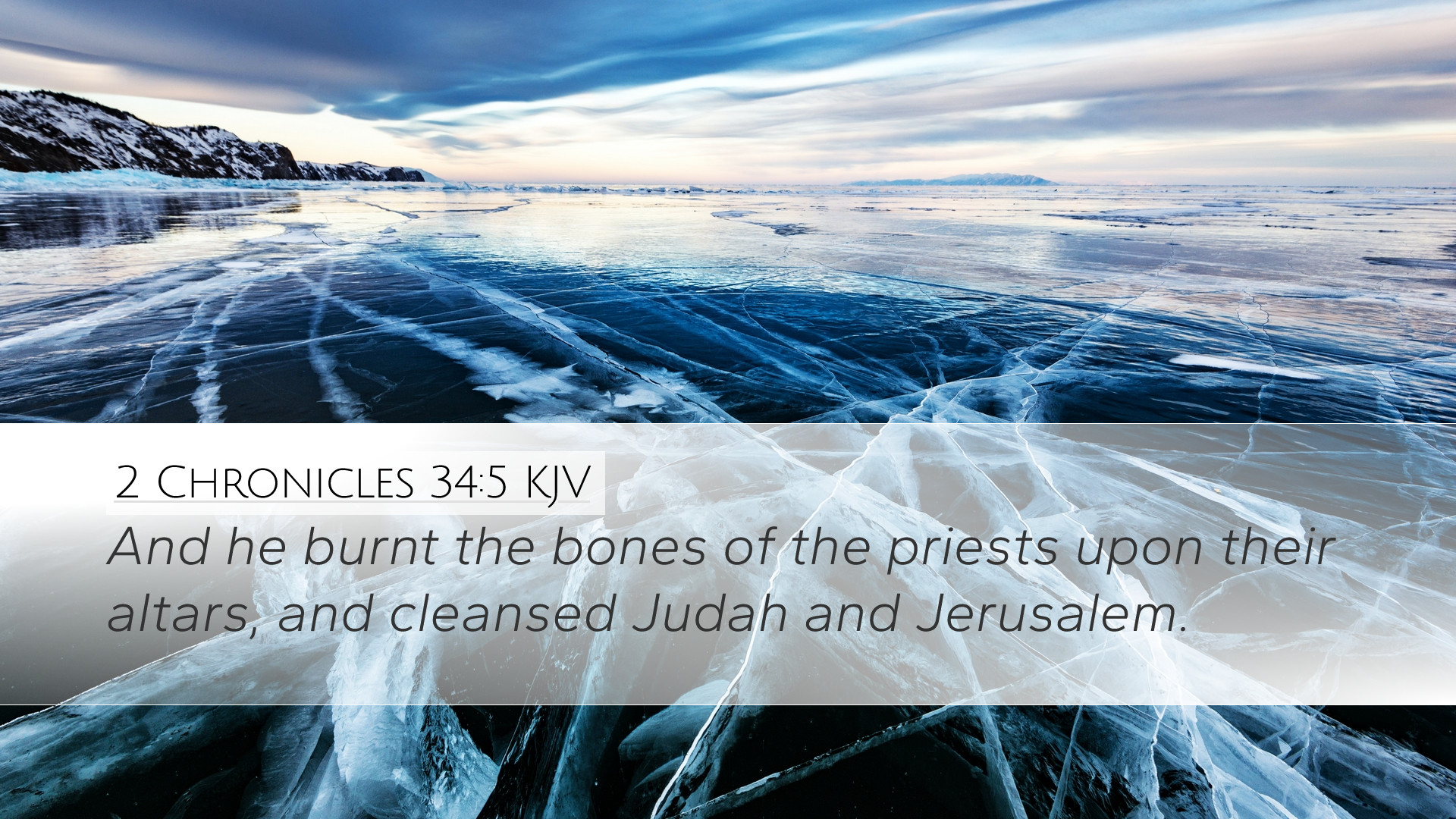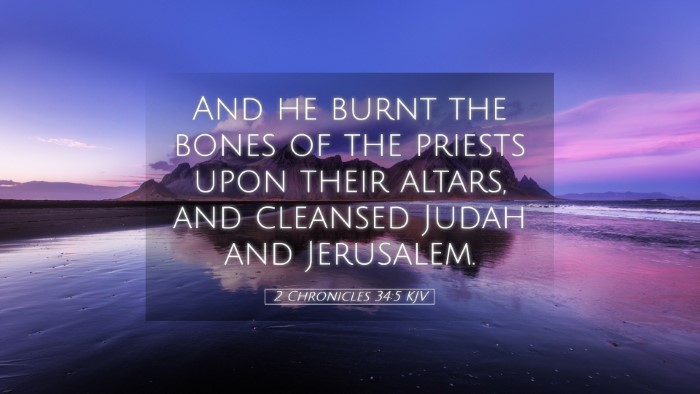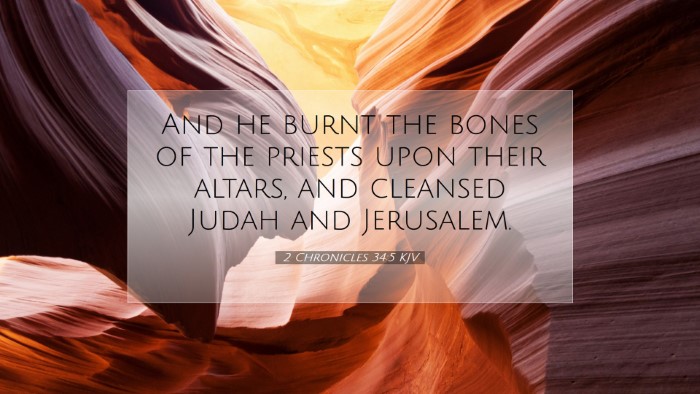Commentary on 2 Chronicles 34:5
Verse: "And he burned the bones of the priests upon their altars, and cleansed Judah and Jerusalem."
This verse highlights an important aspect of King Josiah's reforms in Judah, emphasizing the seriousness with which he approached the restoration of true worship and the eradication of idolatry from the land. The actions taken by Josiah are not just political but are steeped in covenant faithfulness and a return to the Lord.
Historical Context
Josiah became king at a remarkably young age, becoming an effective reformer in a time when Judah was plagued by idolatry. The historical backdrop includes a period of moral and spiritual decay, wherein the previous kings led the nation further away from God. This context is critical to understanding the significance of verse 5.
Matthew Henry's Commentary
Matthew Henry emphasizes the drastic measures Josiah undertook in his purging of idolatry. His actions were rooted in a desire for purity in worship. Henry points out how Josiah's act of burning the bones of the priests signifies the utmost contempt toward idolatrous practices, showcasing the seriousness of this act as part of his reformation. It is a vivid illustration of the lengths one must sometimes go to in order to restore true worship in a community.
Albert Barnes' Notes
Barnes comments on the significance of the bones being burned on the altars. He observes that Josiah's zeal was remarkable, reflecting both a deep commitment to the covenant established by God and a desire to restore reverence and faithfulness to the worship of Yahweh. Barnes draws attention to the symbolism of this act—the destruction of false worship and the restoration of rightful honor to God. The act serves as a judgment against the idolatrous priests who led the people away from God.
Adam Clarke's Exposition
Clarke remarks on the implications of Josiah’s actions for both Judah and Jerusalem. He stresses that such a purification process was essential, as the land had been defiled by previous rulers' actions. By cleansing the land in such a dramatic manner, Josiah demonstrated his commitment not just to external reforms but also to internal transformation. Clarke encourages readers to reflect on the personal and communal aspects of holiness and the lengths necessary to align with God’s standards.
Theological Significance
This verse helps illustrate key theological themes, particularly the importance of holiness and the necessity of addressing sin for restoration to occur. The burning of the bones signifies a complete break with the sins of the past, suggesting that true repentance often requires radical actions against ingrained patterns of disobedience.
- Radical Obedience: Josiah's example is one of radical obedience to God’s call for restoration.
- Restoration of Worship: The act signifies a return to authentic worship, where God's glory is prioritized over human traditions.
- Judgment and Mercy: Josiah's reforms exemplify the tension between God's judgment on sin and His mercy toward those who seek Him sincerely.
Application for Pastors and Theologians
For contemporary pastors and theologians, this verse serves as a reminder of the ongoing need for reformation within the church. Just as Josiah confronted the idolatry of his time, leaders today must be vigilant against anything that distorts or undermines true worship. There are several lessons to draw from this passage:
- Confrontation with Sin: Church leaders must not shy away from confronting sin, both personally and corporately, understanding that true spiritual health requires accountability and action.
- Emphasis on Holiness: There should be a renewed emphasis on holiness and purity, compelling congregations to seek God's face genuinely and without the distractions of modern idolatry.
- Encouraging Radical Change: Josiah's reforms teach the necessity of being willing to make radical changes for the sake of the Gospel, even in the face of cultural resistance.
Conclusion
2 Chronicles 34:5 serves as a powerful reminder of the need for radical reform and sincere dedication to God. From the insights provided by respected commentaries, we see that the actions of King Josiah were not merely historical events but lessons for contemporary faith communities. His commitment to cleansing the land of idolatry invites modern believers to examine their own lives and communities, leading them toward renewed faithfulness and true worship of the Lord.


